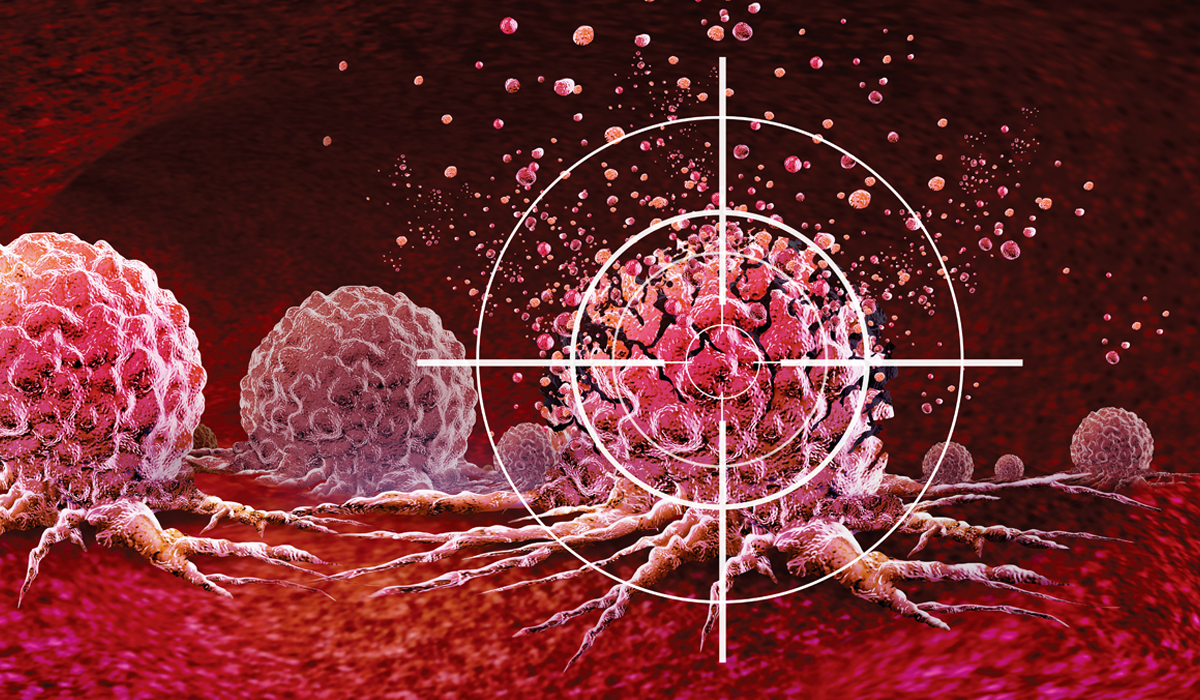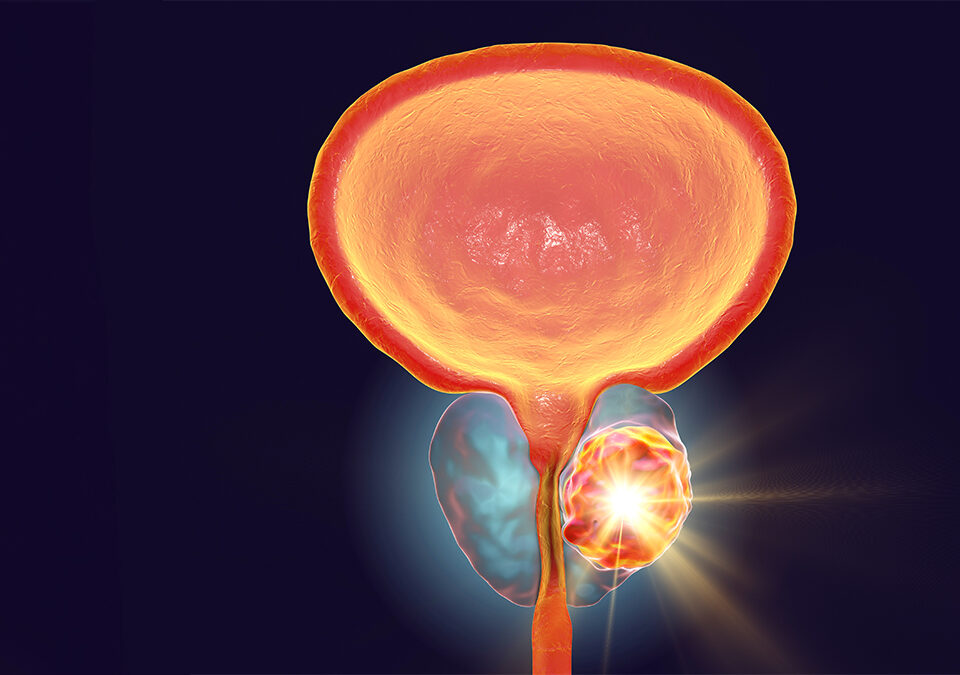

COURTESY GRAPHIC
Cancer is a disease in which the cells in an area of the body grow uncontrollably, often forming masses, or tumors, that destroy healthy tissue. Surgery, chemotherapy and radiation therapy are common treatments for many types of cancer.
During surgery, doctors remove the cancerous tumors and a margin of healthy tissue surrounding them. Chemotherapy uses strong medications to kill cancer cells, and radiation therapy uses high-energy rays or particles to destroy cancer cells.
When these treatments fail to contain the cancer, patients are often referred to Ashok Muthukrishnan, MD, MS, founder of Florida Theranostics Cancer Center.
Theranostics uses one radioactive molecule for both diagnosis and therapy of specific cancers, and one of its most promising applications is radioligand therapy.
“Radioligand therapy is a powerful new form of radiation therapy that is specifically targeted to certain receptors on the surface of cancer cells,” Dr. Muthukrishnan details. “It has two main components, a radioisotope and a cell-targeting compound called a ligand. Together these components deliver radiation to the cancer.”
-Ashok Muthukrishnan, MD, MS
A radioisotope is an unstable form of a chemical element that releases radiation when it breaks down, which can allow it to achieve a stable state.
“Currently, there are two FDA-approved radioligand therapies,” Dr. Muthukrishnan reports. “One is for prostate cancer, the other is for neuroendocrine cancer. During radioligand therapy, a radioisotope is delivered directly into the cells of the tumor. It’s like dropping a mini nuclear bomb into a cancer cell. Because it’s so targeted, this treatment damages only the tumor while sparing the adjacent healthy tissues.”
For prostate cancer, the radioactive medication targets PSMA, or prostate-specific membrane antigens. PSMA are proteins found on the surface of prostate cells. With prostate cancer, the cells have a higher-than-normal amount of these proteins and are known as PSMA positive. The concentration of PSMA is relevant to locating the cancer and pinpointing where a radioactive drug can treat it.
A radioactive medication called PLUVICTO® (lutetium-177 PSMA) was approved by the FDA in 2022 for the treatment of metastatic prostate cancer. (Metastatic refers to cancer that has spread to other areas of the body.) Dr. Muthukrishnan provides this treatment at the center.
Compassionate Use
Florida Theranostics Cancer Center recently began offering another radioligand therapy for metastatic prostate cancer that uses an investigational medication called lutetium-177 PNT 2002. Clinical trials studying this medication have been completed, and the trial data have been submitted to the FDA for approval, which is expected soon.
In the meantime, Dr. Muthukrishnan has been granted permission to use lutetium-177 PNT 2002 for patients with metastatic prostate cancer ahead of its approval through a “compassionate use,” or “expanded access,” authorization from the FDA.
A compassionate use authorization provides a pathway for people with serious or life-threatening conditions to gain access to investigational therapies when no comparable therapies are available.
The FDA closely monitors therapies permitted by this authorization.
“Lutetium-177 PNT 2002 is still considered a research drug because it hasn’t been officially approved,” Dr. Muthukrishnan expounds. “But it’s been used in Europe and elsewhere for a long time and has proven to be very efficacious.
“Lutetium-177 is the radioactive component of the drug, and it’s attached to another molecule called PNT 2002. This molecule targets the PSMA receptors on the cancer cells and drags the radioactive lutetium-177 with it into the cancer cells, which are then destroyed.”
Before Dr. Muthukrishnan begins treatment with lutetium-177 PNT 2002, he must first be sure that the cancer cells are expressing PSMA receptors for the medication to be effective.
“We determine that by performing a PET (positron emission tomography) scan for the cancer we’re targeting,” the doctor describes. “For prostate cancer, it’s called a PSMA PET scan. The scan helps us determine the extent of the patient’s prostate cancer and how far it has spread within the body. We then target those areas with the treatment.”
During a PET scan, a radioactive drug called a tracer is used to show normal and abnormal metabolic activity in the body. (Metabolic refers to the chemical processes occurring within the body that are necessary to sustain life.) The radioactive compounds collect in cancer cells, marking abnormal metabolic activity.
“There are two tracers that can be used for the PSMA PET scan: gallium PSMA (Ga-68) and F18PSMA,” Dr. Muthukrishnan notes. “These are the radioactive elements that help the radiologist visualize the cancerous tumors, and lutetium-177 PNT 2002 is the radioactive element that has a therapeutic effect on the cancer cells within the tumor.
“Whatever we see on the PSMA PET scan is what we target with the lutetium-177 PNT 2002. The medication is delivered in a four-cycle treatment given by IV infusion at eight-week intervals.”
Ordering a PSMA PET scan is a standard of care for PSMA-positive metastatic prostate cancer. The patient’s oncologist typically orders the imaging test before providing a referral to Florida Theranostics Cancer Center. However, Dr. Muthukrishnan plans to expand his practice in the coming months to include the imaging component so care will be seamless.
Neuroendocrine Cancer
Dr. Muthukrishnan and his staff at Florida Theranostics Cancer Center also use radioligand therapy to treat neuroendocrine tumors. This slow-growing cancer begins in the cells of the neuroendocrine system, which integrates nerve and endocrine functions. Neuroendocrine cells are found in multiple locations in the body.
The neuroendocrine system regulates physiological processes through hormones that are released directly into the bloodstream. Most neuroendocrine tumors start in the small intestine and less frequently in the pancreas, stomach or lungs.
“Neuroendocrine cancer is difficult to diagnose because its symptoms are nonspecific,” reports Dr. Muthukrishnan, who is known as a pioneer in nuclear medicine and radioligand cancer therapy. “Some patients may have chronic diarrhea, some may have abdominal pain, some may have flushing (a reddening of the skin, often with a burning sensation). Some may have a combination, and some may have no symptoms at all.
“Diagnoses are further complicated because symptoms of neuroendocrine cancer mimic those of other ailments, such as inflammatory bowel disease (IBD). Consequently, patients are often misdiagnosed and do not receive the appropriate treatment initially. In many cases, this cancer is not diagnosed until it has spread to other areas of the body, most commonly the liver and bones.”
Dr. Muthukrishnan uses the radioligand therapy LUTATHERA® (lutetium lu-177 dotatate) to treat neuroendocrine tumors.
“Dotatate is a peptide, or small protein, found on neuroendocrine tumor cells that responds to certain radioactive compounds,” he details. “Dotatate therapy with LUTATHERA binds to the protein and can slow the growth of neuroendocrine tumors and, in some cases, halt their growth.
“The process of treating neuroendocrine cancer and prostate cancer is similar. First, we perform a dotatate PET scan, and then we treat with lutetium lu-177 dotatate. For the imaging, we use the less-potent radioactive compound NETSPOT™ (gallium GA-68 dotatate). The areas visualized on the dotatate PET scan are the areas we target with LUTATHERA.”








Leave a Reply